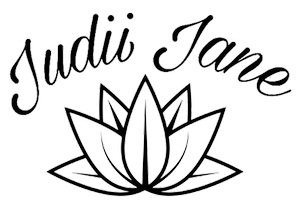Can You Eat Weed? All You Need to Know About Marijuana Edibles
Cannabis is a term that refers to the dried flowers, seeds, stems, and leaves of the Cannabis sativa L species of plants. It's a popular drug that millions of people use for pleasure or to cure persistent health problems. Cannabis can be consumed in a variety of ways, including smoking, vaping, and eating (also known as "edibles"), but the most common methods are smoking and eating. However, some individuals are concerned about whether consuming cannabis-based products is safe and whether it has the same effects as smoking or vaping.
Can you eat marijuana?
Yes, cannabis may be eaten in small quantities. Cannabis-infused foods or beverages have been consumed across history, dating back to 1000 B.C. Cannabis has been used as a medicine in China and India for thousands of years, and it was first introduced to Western medicine in the early 19th century. Tinctures, for example, were used to cure a variety of conditions, including chronic pain and digestive issues.
Edible cannabis goods were also utilized to relieve tension and create euphoria, much like alcohol. During religious holidays, such as Holi, a Hindu festival of love and colour, bhang, a beverage manufactured from cannabis plant leaves and flowers, has been consumed for millennia.
Edibles are becoming increasingly popular in the United States, where they were first utilized during the 1960s as a means of relaxation. Depending on state legislation, many different kinds of edibles are accessible both lawfully and illegally, reflecting how readily people consume them.
What is Raw cannabis?
Cannabis plants, such as marijuana or hemp, have a higher level of tetrahydrocannabinolic acid (THCA) and cannabidiolic acid (CBDA), which must be heated, such as by smoking or baking, to become active forms: tetrahydrocannabinol (THC) and cannabidiol. Although you can eat raw cannabis, it won't have the same impact as ingesting cannabis-based products since it must be decarboxylated. As a result, eating raw cannabis will not produce the same effects as smoking or consuming cannabis that has been cooked, as in edibles such as sweets, tinctures, and baked goods.
While eating raw cannabis can't make you high, some people argue that it has special health advantages owing to the diverse chemical components it includes. However, there has been little study in this area, leaving the possible therapeutic benefit of raw cannabis uncertain. Cannabis has been consumed in a variety of forms throughout history for both medical and recreational purposes. Although you may consume raw cannabis, it will not give the same effects as cannabis that has been cooked.
Health benefits related to edible marijuana
Cannabis has been used to treat a variety of illnesses throughout history and has shown promise as a medical treatment for a long list of ailments. According to an article by The Wall Street Journal, patients are increasingly using edible cannabis products, and surveys have shown that the majority of healthcare professionals believe that cannabis should be a medical alternative for people.
It May benefit certain health conditions. Edible cannabis products are often used to treat conditions, such as:
● Chronic pain
● Cancer-related symptoms
● Anxiety
The chemical compound responsible for the intoxicating effects of cannabis products, such as edibles, that may cause euphoria and relaxation is THC. Cannabidiol (CBD) is a cannabinoid that has been shown to help with pain relief. It's also thought to be the main ingredient in cannabis responsible for the pain-relieving effects. CBD, for example, is a non-intoxicating compound that has been found to have anti-anxiety and anti-inflammatory effects.
Cannabinoids are an important component of many cannabis edible products, such as oils, tinctures, pills, and gummies, which are commonly consumed to treat anorexia, pain, and weight loss in people who have cancer. Finally, they may decrease pain and muscular spasms, relieve nausea and vomiting, improve sleep quality, and reduce anxiety.
Potential side effects and downsides of eating weed
Cannabis edibles can benefit a variety of illnesses, but some potential negative effects may occur. The main disadvantage of edible cannabis products is that determining the correct dosage might be difficult. THC concentrations vary considerably depending on a variety of variables, including the plant's country of origin and the quality of the cannabis used.
As a result, the adage "start low and go slow" when consuming edibles, especially for first-time users, means start with a small dose and wait several hours before taking any more. In addition, while uncommon, cannabis-induced psychotic episodes have occurred; these are usually associated with overconsumption of edibles and include symptoms such as paranoid delusions, extreme drowsiness, hallucinations, and disorientation.
Dry mouth, drowsiness, and altered visual perception are other possible adverse effects associated with ingestible cannabis products. Edibles are not recommended for anybody who is taking anti-anxiety medications, blood thinners, cholesterol-lowering drugs, or other medicines that affect the body's ability to metabolize THC. As a result of this interaction, edibles should be avoided with these other drugs.


